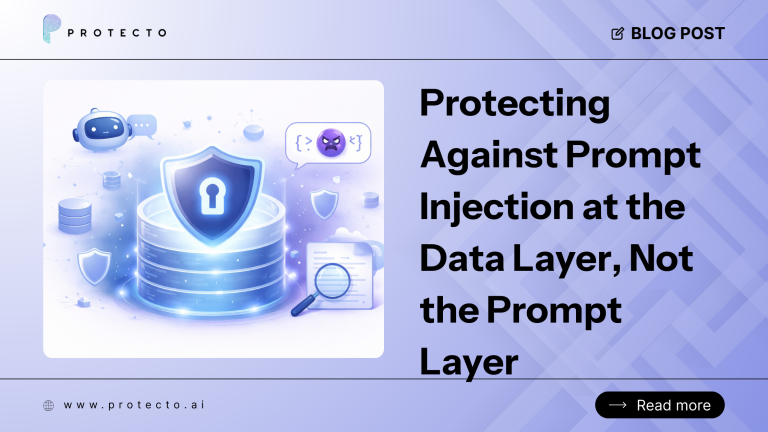Cyber insurance, also referred to as cyber liability insurance, is a specialized insurance product designed to help businesses mitigate financial losses resulting from cyber threats. In today’s digital landscape, cyber risks such as ransomware attacks, malware infections, and data breaches can lead to severe financial and operational damage.
For businesses, having a cyber insurance policy is crucial as it provides financial protection against data breaches, regulatory penalties, and disruptions caused by cyberattacks. This brings us to an important question: “What does cyber insurance cover?”
What Does a Cyber insurance Policy Cover?
Cyber insurance policies vary across providers, but most comprehensive policies include protection against financial and legal risks related to cyber incidents. Here are some of the common coverage areas under a cyber insurance policy:
- Business Interruption Losses – Covers revenue loss due to cyber incidents impacting business operations.
- Contingent Business Interruption – Includes financial losses caused by downtime from third-party IT service providers.
- System Failure Costs – Covers costs related to IT system failures caused by cyber incidents.
- Data Breach Insurance – Protects businesses from costs associated with a data breach, including notification expenses, credit monitoring, and crisis management.
- Cyber Extortion and Ransomware – Covers payments made due to ransomware attacks and extortion demands.
- Data Privacy Insurance – Covers legal fees and settlements related to privacy law violations.
- Data Retrieval and System Restoration – This covers the cost of recovering lost or damaged data and restoring affected systems.
- Data Breach Liability Insurance – Helps businesses manage third-party claims related to a data breach.
In addition, cyber insurance policies today are increasingly focusing on offering business with post-breach funds.
It is also important to know that your cyber insurance policy does not cover certain forms of cyber risks. One example of such risk includes the financial damage or devastation that might occur due to terrorist activity or by war or even business loss that can happen due to the failure of the business’s internal infrastructure. In addition, costs due to reputation loss driven by such situations will not be covered either.
So, you must read between the fine lines and go into every aspect of your cyber-insurance policy before signing on the dotted line.
Interesting Read: “What is Data Privacy”
What Does Cyber Insurance Not Cover?
While cyber insurance offers robust protection, it does not cover all cyber-related risks. Some exclusions include:
- Terrorism or Acts of War – Losses due to cyber warfare or nation-state attacks.
- Reputation Damage – Financial loss from reputation damage caused by a cyber incident.
- Internal Infrastructure Failures – Business losses due to poor internal IT security measures.
- Regulatory Fines (in some cases) – Not all cyber insurance policies cover regulatory penalties, including GDPR fines.
Understanding the fine print of your cyber and privacy insurance policy is critical to ensure adequate coverage for your business.
Does Cyber Insurance Cover GDPR Fines?
The General Data Protection Regulation (GDPR), which took effect in May 2018, mandates strict data protection measures for businesses handling the personal data of EU citizens. Failure to comply with GDPR in cyber security can result in hefty fines and penalties.
While some data breach insurance policies offer coverage for regulatory fines, GDPR fines present a unique challenge due to legal uncertainties around insurability. Here are key factors to consider:
Consider the following:
1. Who is a Privacy Regulator?
Your cyber insurance GDPR policy may list ‘international’ or ‘foreign’ regulatory entities, but this does not automatically guarantee GDPR compliance. Businesses should verify whether their policy explicitly covers GDPR-related fines.
2. Difference Between Breach and Privacy Violations
Many cyber insurance policies cover costs related to data breach insurance but may not include broader privacy violations under GDPR, such as improper data storage, access, and management.
3. Regulatory Coverage
Ensure your cyber insurance policy specifies coverage for GDPR-related penalties, including:
- Failing to appoint a Data Protection Officer (DPO)
- Inadequate data storage practices
- Unauthorized data processing
4. Most Favorable Venue for Fines and Penalties
Some cyber and privacy insurance policies include a “most favorable venue” clause, meaning insurers will explore all legal options before deciding whether to cover GDPR fines. More insurers are adopting this provision, making policies more GDPR-compliant.
Who is a privacy regulator ‘ You may find that your cyber insurance policy mentions ‘international’ or ‘foreign’ entities within their potential privacy regulatory bodies list to give the impression that the policy is strongly GDPR aligned. However, this does not naturally translate into material change.
The difference in the definition of Breach vs. Privacy Violations ‘ Typically, the language for ‘privacy law’ in cyber-policies pertains simply to laws regulating a privacy breach. However, GDPR includes a wider scope of privacy issue rules, including how you store, manage, and access user data. So while your policy might include coverage for claims related to these exposures, a robust cyber-insurance policy should ideally cover any potential allegation of improper data storage and management.
Regulatory coverage ‘ It is important to ensure that your cyber-insurance policy specifies coverage for privacy violations related to every aspect of how data is stored and managed. You might also want to see if your cyber-insurance policy covers other critical aspects of GDPR violations, including ‘not hiring a Data Protection Officer.
Most favorable venue for fines and penalties ‘ The most favorable venue provision within your GDPR cyber-insurance policy indicates the intention of the insurer to pay the penalty or a fine whenever possible. This means that the insurer will consider all reasonable venues before going ahead and deciding whether or not the penalty or fine can be covered or if it is insurable. Today an increasing number of cyber-insurance insurers are displaying a willingness to get on board with this provision to make the policy more GDPR compliant.
Also, check our New blog on “Cloud Migration Challenges”
To Wrap Up
Cyber threats are evolving, and GDPR cyber security regulations continue to shape the landscape of cyber insurance policies. As regulations and cyber risks become more complex, businesses should carefully review their data breach insurance policy to ensure it provides adequate protection, including coverage for GDPR fines.
Before signing a policy, businesses must consult legal and insurance experts to confirm that their cyber insurance GDPR coverage aligns with their data security and compliance needs.



